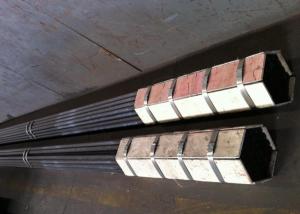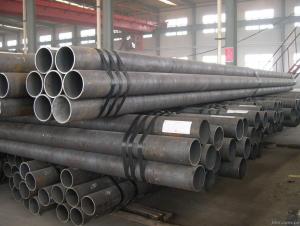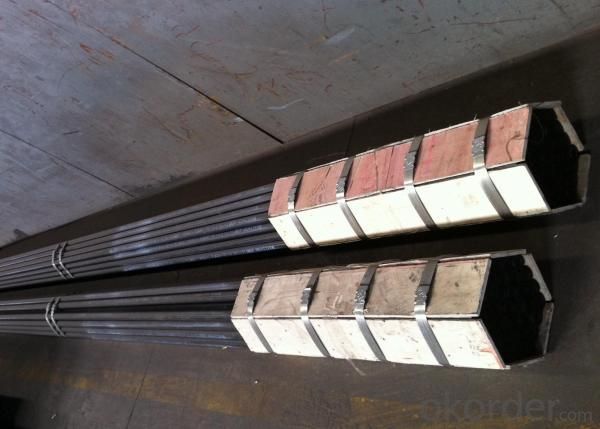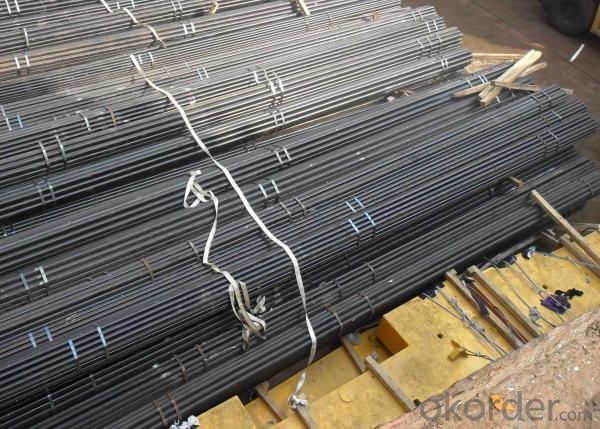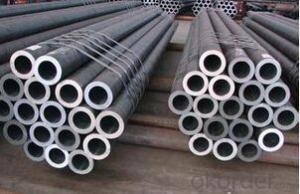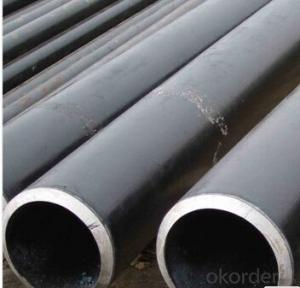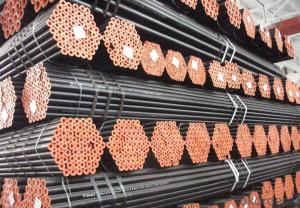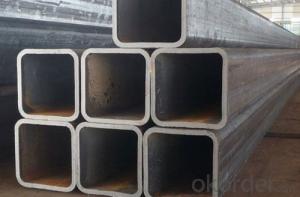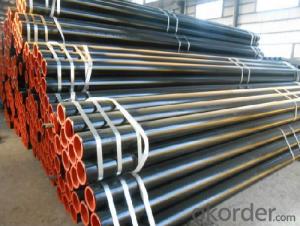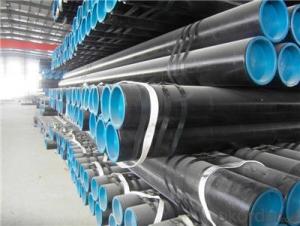Seamless Steel Tubes And Pipes For Low And Medium Pressure Boiler
- Loading Port:
- China Main Port
- Payment Terms:
- TT or LC
- Min Order Qty:
- 50 MT m.t.
- Supply Capability:
- 5000 Tons Per Month m.t./month
OKorder Service Pledge
OKorder Financial Service
You Might Also Like
Usage/Applications: For manufacturing、heating-pipeliners、containers、steaming pipeliners of low/medium pressure boilers(P<5.88Mpa,T<450℃) Packaging & Delivery: Each bundles pipes will be bundled with 6-8 pcs steel strips and with shipping marks and 2 nylon strips 40-50 days delivery on china port upon receiving orinigal LC or prepayment. | |||||||||||||||||||||||||||||||||||||||||||||||||||||||||||
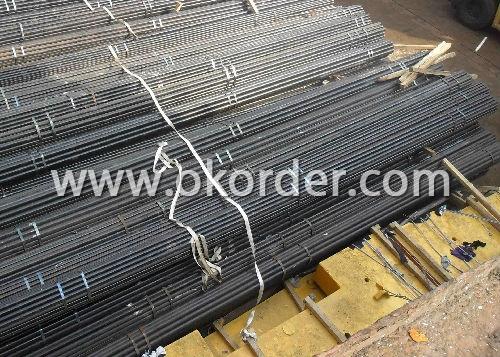
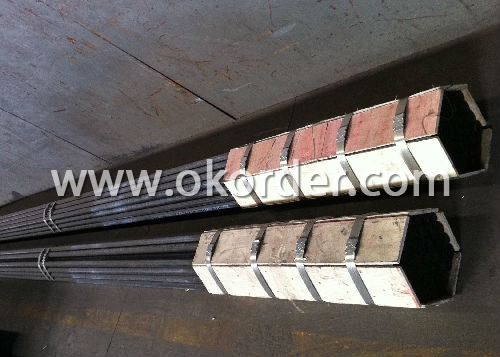
- Q: What is the difference between steel pipes and copper-nickel pipes?
- The main difference between steel pipes and copper-nickel pipes lies in their composition and characteristics. Steel pipes are primarily made of iron and carbon, whereas copper-nickel pipes are made of a combination of copper and nickel with trace amounts of other elements. Steel pipes are known for their strength and durability, making them suitable for a wide range of applications, particularly in industries where high pressure and temperature conditions are present. Steel pipes are also relatively cost-effective and have good corrosion resistance, especially when coated or galvanized. On the other hand, copper-nickel pipes are highly resistant to corrosion and have excellent heat transfer properties. They are commonly used in marine environments due to their resistance to saltwater corrosion. Copper-nickel pipes also exhibit antimicrobial properties, making them suitable for applications in healthcare and food processing industries. However, copper-nickel pipes are generally more expensive than steel pipes. In summary, steel pipes are valued for their strength and affordability, while copper-nickel pipes offer superior corrosion resistance and heat transfer properties, but at a higher cost. The choice between the two depends on the specific requirements of the application.
- Q: Can steel pipes be used for underground cooling systems?
- Indeed, underground cooling systems can make use of steel pipes. Thanks to their durability, strength, and resistance to corrosion, steel pipes are widely employed in numerous applications, including underground cooling systems. They are adept at handling the rigorous demands of cooling systems, such as high pressure and temperature requirements. Moreover, steel pipes can be conveniently installed and maintained by means of welding or threading them together. Nonetheless, it is crucial to ensure that the steel pipes are adequately coated or insulated in order to avert corrosion and uphold heat transfer efficiency.
- Q: How to identify stainless steel pipe and steel pipe?
- Steel pipe according to the production method can be divided into two categories: seamless steel pipe and pipe joints, pipe joints as welded steel pipe.1. seamless steel tube according to the production methods can be divided into: hot-rolled seamless pipe, cold drawn tube, precision steel tube, heat expansion tube, cold spinning tube and extrusion tube.Seamless steel tubes are made of high quality carbon or alloy steel. They are hot-rolled and cold-rolled (drawn).Bundled steel pipe2. welded steel pipe for different welding process and divided into the furnace pipe welding (ERW) pipe and automatic arc welding, because of the different forms of welding seam welded pipe and spiral welded pipe is divided into two kinds, end its shape is divided into circular welded and shaped (square, flat) pipe.
- Q: Are steel pipes suitable for use in chemical plants?
- Yes, steel pipes are suitable for use in chemical plants. Steel pipes offer excellent resistance to corrosion, high durability, and can withstand high temperatures and pressures commonly found in chemical processing. Additionally, steel pipes can be easily welded, making them versatile for various chemical applications.
- Q: What is the purpose of pipe flanges in steel pipes?
- The purpose of pipe flanges in steel pipes is to provide a connection point between two pipe sections, allowing for easy assembly, disassembly, and maintenance of the pipeline. Flanges also help to create a leak-proof seal, enhance the strength and stability of the joint, and provide flexibility for expansion and contraction of the pipes.
- Q: How are steel tubes represented?
- If you speak of steel pipe, if it is water. Gas transmission pipe, then it is said: nominal diameter refers to the inner diameter. The units are millimeters or inches. [for example, water pipes with phi 25. It means that the nominal diameter (diameter) is 25mm (or an inch) steel pipe.
- Q: How do steel pipes handle water hammer in high-rise buildings?
- Steel pipes in high-rise buildings handle water hammer by absorbing the sudden pressure surges caused by the rapid opening and closing of valves. The strong and durable nature of steel pipes allows them to withstand the impact of water hammer without experiencing significant damage or ruptures. Additionally, the flexibility of steel pipes helps to dissipate the kinetic energy generated by the water hammer, reducing the risk of pipe bursts and ensuring the smooth flow of water throughout the building.
- Q: Where is the difference between seamless steel pipe and welded pipe?
- In appearance, seamless steel pipe and welded steel pipe difference in the welded pipe wall welded tendons, and seamless No.
- Q: How are steel pipes connected to other materials like concrete or plastic?
- Steel pipes can be connected to other materials like concrete or plastic through various methods such as welding, flanges, threaded connections, or using specialized fittings. These connections ensure a secure and durable bond between the steel pipe and the other material, allowing for effective transfer of fluids or structural support.
- Q: What are the different types of steel pipe coatings for corrosive environments?
- There are several types of steel pipe coatings used for corrosive environments, including epoxy coatings, polyethylene coatings, fusion bonded epoxy coatings, and zinc coatings. These coatings provide a protective barrier against corrosion and extend the lifespan of the steel pipes in harsh conditions.
1. Manufacturer Overview
| Location | Wuxi, China |
| Year Established | 1991 |
| Annual Output Value | 300,000Tons |
| Main Markets | Europe; Southeast Asia; etc. |
| Company Certifications | API 5L;API 5CT;API Q1;ISO/TS29001 |
2. Manufacturer Certificates
| a) Certification Name | |
| Range | |
| Reference | |
| Validity Period |
3. Manufacturer Capability
| a) Trade Capacity | |
| Nearest Port | Wuxi; Shanghai |
| Export Percentage | 41% - 50% |
| No.of Employees in Trade Department | 3900-4000 People |
| Language Spoken: | English; Chinese; Spanish |
| b) Factory Information | |
| Factory Size: | Above 450,000 square meters |
| No. of Production Lines | Above 10 |
| Contract Manufacturing | OEM Service Offered;Design Service Offered |
| Product Price Range | Average |
Send your message to us
Seamless Steel Tubes And Pipes For Low And Medium Pressure Boiler
- Loading Port:
- China Main Port
- Payment Terms:
- TT or LC
- Min Order Qty:
- 50 MT m.t.
- Supply Capability:
- 5000 Tons Per Month m.t./month
OKorder Service Pledge
OKorder Financial Service
Similar products
Hot products
Hot Searches
Related keywords
